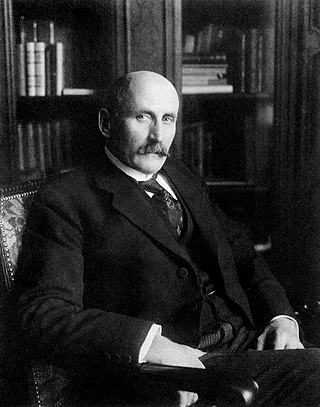| year | date | newly elected | regular term | predecessor(s) | notes |
| 1848 | 16 November | Ulrich Ochsenbein, Jonas Furrer, Martin J. Munzinger, Henri Druey, Friedrich Frey-Herosé, Wilhelm Matthias Naeff and Stefano Franscini | | – | first election following the foundation of the Swiss Confederacy as a federal state with the entering into force of the federal constitution on 12 September. |
| 1854 | 6 December | Jakob Stämpfli | | Ulrich Ochsenbein | non-reelection of Ochsenbein |
| 1855 | 11 July | Constant Fornerod | | Henri Druey (died in office) |
| 1855 | 14 July | Josef Martin Knüsel | | Martin J. Munzinger (died in office) | Knüsel was elected after Johann Jakob Stehlin refused to serve |
| 1857 | 39 July | Giovanni Battista Pioda | | Stefano Franscini (died in office) |
| 1861 | 30 July | Jakob Dubs | | Jonas Furrer (died in office) |
| 1863 | 12 December | Karl Schenk | | Jakob Stämpfli |
| 1864 | 12 July | Jean-Jacques Challet-Venel | | Giovanni Battista Pioda |
| 1866 | 8 December | Emil Welti | | Friedrich Frey-Herosé |
| 1867 | 6 December | Victor Ruffy | | Constant Fornerod |
| 1870 | 1 February | Paul Cérésole | | Victor Ruffy (died in office) |
| 1872 | 12 July | Eugène Borel, Johann Jakob Scherer | | Jean-Jacques Challet-Venel | non-reelection of Challet-Venel |
| 1875 | 10 December | Bernhard Hammer, Numa Droz, Fridolin Anderwert, Joachim Heer | | Eugène Borel, Paul Cérésole, Wilhelm Matthias Naeff, Josef Martin Knüsel | Droz was elected after Louis Ruchonnet and Charles Estoppey declined their election. |
| 1878 | 10 December | Simeon Bavier | | Joachim Heer |
| 1879 | 21 March | Wilhelm Friedrich Hertenstein | | Johann Jakob Scherer |
| 1881 | 3 March | Louis Ruchonnet | | Fridolin Anderwert (died in office) | Karl Hoffmann refused to serve |
| 1883 | 10 April | Adolf Deucher | | Simeon Bavier |
| 1888 | 13 December | Walter Hauser | | Wilhelm Hertenstein (died in office) |
| 1890 | 11 December | Emil Frey | | Bernhard Hammer |
| 1891 | 17 December | Josef Zemp | | Emil Welti | Zemp as a member of the Swiss Conservative People's Party (the predecessor of the Christian Democratic People's Party of Switzerland) was the first councillor not of the Radical Party, beginning of the Swiss concordance system. |
| 1892 | 15 December | Adrien Lachenal | | Numa Droz |
| 1893 | 14 December | Eugène Ruffy | | Louis Ruchonnet (died in office) |
| 1895 | 16 August | Eduard Müller | | Karl Schenk (died in office) |
| 1897 | 25 March | Ernst Brenner | | Emil Frey |
| 1899 | 14 December | Marc-Emile Ruchet, Robert Comtesse | | Eugène Ruffy, Adrien Lachenal |
| 1902 | 11 December | Ludwig Forrer | | Walter Hauser (died in office) |
| 1908 | 17 June | Josef Anton Schobinger | | Josef Zemp |
| 1911 | 4 April | Arthur Hoffmann | | Ernst Brenner (died in office) |
| 1911 | 14 December | Giuseppe Motta | | Josef Anton Schobinger, |
| 1912 | 12 March | Louis Perrier | | Robert Comtesse |
| 1912 | 17 July | Edmund Schulthess, Camille Decoppet | | Adolf Deucher (died in office), Marc-Emile Ruchet |
| 1913 | 12 June | Felix-Louis Calonder | | Louis Perrier |
| 1917 | 26 June | Gustave Ador | | Arthur Hoffmann | Ador was the first, and to date only, councillor of the Liberal Party of Switzerland |
| 1917 | 13 December | Robert Haab | | Ludwig Forrer | |
| 1919 | 11 December | Jean-Marie Musy, Ernest Chuard, Karl Scheurer | | Gustave Ador, Camille Decoppet, Eduard Müller (died in office) |
| 1920 | 12 February | Heinrich Häberlin | | Felix-Louis Calonder |
| 1928 | 13 December | Marcel Pilet-Golaz | 1928 Swiss federal election | Ernest Chuard | |
| 1929 | 12 December | Albert Meyer, Rudolf Minger | | Robert Haab, Karl Scheurer (died in office) | Minger was the first representative of the Party of Farmers, Traders and Independents (BGB/PAI), the predecessor of the Swiss People's Party. |
| 1931 | | | 1931 Swiss federal election | | |
| 1934 | 22 March | Johannes Baumann | | Heinrich Häberlin |
| 1934 | 28 March | Philipp Etter | | Jean-Marie Musy |
| 1935 | 4 April | Hermann Obrecht | | Edmund Schulthess |
| 1938 | 15 December | Ernst Wetter | | Albert Meyer |
| 1940 | 18 July | Walther Stampfli | | Hermann Obrecht |
| 1940 | 10 December | Enrico Celio, Walther Stampfli, Eduard von Steiger, Karl Kobelt | | Giuseppe Motta, Rudolf Minger, Johannes Baumann |
| 1943 | 15 December | Ernst Nobs | | Ernst Wetter | First Councillor of the Social Democratic Party. |
| 1944 | 14 December | Max Petitpierre | | Marcel Pilet-Golaz |
| 1947 | 11 December | Rodolphe Rubattel | 1947 Swiss federal election | Walther Stampfli | |
| 1950 | 14 September | Joseph Escher | | Enrico Celio |
| 1951 | 13 December | Markus Feldmann, Max Weber | 1951 Swiss federal election | | Eduard von Steiger, Ernst Nobs |
| 1953 | 22 December | Hans Streuli | | Max Weber |
| 1954 | 16 December | Thomas Holenstein, Paul Chaudet, Giuseppe Lepori | | Karl Kobelt, Joseph Escher (died in office), Rodolphe Rubattel |
| 1955 | | | 1955 Swiss federal election | | all sitting councillors confirmed |
| 1958 | 11 December | Friedrich Traugott Wahlen | | Markus Feldmann (died in office) |
| 1959 | 17 December | Jean Bourgknecht, Willy Spühler, Ludwig von Moos, Hans Peter Tschudi | 1959 Swiss federal election | Philipp Etter, Hans Streuli, Thomas Holenstein, Giuseppe Lepori | beginning of the Zauberformel. Tschudi was elected instead of the nominated candidate Walther Bringolf. |
| 1961 | 15 June | Hans Schaffner | | Max Petitpierre |
| 1962 | 27 September | Roger Bonvin | | Jean Bourgknecht |
| 1963 | | | 1963 Swiss federal election | | all sitting councillors confirmed |
| 1965 | 8 December | Rudolf Gnägi | | Friedrich Traugott Wahlen |
| 1966 | 14 December | Nello Celio | | Paul Chaudet |
| 1967 | | | 1967 Swiss federal election | | all sitting councillors confirmed |
| 1969 | 10 December | Ernst Brugger, Pierre Graber | | Hans Schaffner, Willy Spühler |
| 1971 | 8 December | Kurt Furgler | 1971 Swiss federal election | Ludwig von Moos | |
| 1973 | 5 December | Willi Ritschard, Hans Hürlimann, Georges-André Chevallaz | | Nello Celio, Roger Bonvin, Hans Peter Tschudi |
| 1975 | | | 1975 Swiss federal election | | all sitting councillors confirmed |
| 1977 | 7 December | Fritz Honegger, Pierre Aubert | | Ernst Brugger, Pierre Graber |
| 1979 | 5 December | Leon Schlumpf | 1979 Swiss federal election | Rudolf Gnägi | |
| 1982 | 8 December | Alphons Egli, Rudolf Friedrich | | Hans Hürlimann, Fritz Honegger |
| 1983 | 7 December | Otto Stich, Jean-Pascal Delamuraz | 1983 Swiss federal election | Willi Ritschard (died in office), Georges-André Chevallaz | first female candidate (Lilian Uchtenhagen) |
| 1984 | 2 October | Elisabeth Kopp | | Rudolf Friedrich | first successful female candidate |
| 1986 | 10 December | Flavio Cotti, Arnold Koller | | Alphons Egli, Kurt Furgler |
| 1987 | 9 December | Adolf Ogi, René Felber | 1987 Swiss federal election | Leon Schlumpf, Pierre Aubert | |
| 1989 | 1 February | Kaspar Villiger | | Elisabeth Kopp | Kopp was forced to resign after a political scandal. |
| 1991 | | | 1991 Swiss federal election | | all sitting councillors confirmed |
| 1993 | 10 March | Ruth Dreifuss | | René Felber | Francis Matthey was elected instead of the nominated Christiane Brunner. Matthey under pressure from his party refused to serve, after Dreifuss which was elected. |
| 1995 | 27 September | Moritz Leuenberger | 1995 Swiss federal election | Otto Stich | |
| 1998 | 11 March | Pascal Couchepin | | Jean-Pascal Delamuraz | |
| 1999 | 11 March | Ruth Metzler-Arnold Joseph Deiss | 1999 Swiss federal election | Arnold Koller Flavio Cotti | The Council for the first time has two female members. |
| 2000 | 6 December | Samuel Schmid | | Adolf Ogi | |
| 2002 | 4 December | Micheline Calmy-Rey | | Ruth Dreifuss | |
| 2003 | 10 December | Christoph Blocher | 2003 Swiss federal election | Ruth Metzler-Arnold | non-reelection of Metzler-Arnold, end of the established Zauberformel and creation of a new one |
| 2006 | 14 June | Doris Leuthard | | Joseph Deiss | |
| 2007 | 12 December | Eveline Widmer-Schlumpf | 2007 Swiss federal election | Christoph Blocher | non-reelection of Blocher. The Council for the first time includes three female members. New Zauberformel interrupted in 2008 |
| 2008 | 10 December | Ueli Maurer | | Samuel Schmid | Maurer was behind Hansjörg Walter in the first two rounds and won 122:121 in the third. |
| 2009 | 16 September | Didier Burkhalter | | Pascal Couchepin | |
| 2010 | 22 September | Simonetta Sommaruga, Johann Schneider-Ammann | | Moritz Leuenberger, Hans-Rudolf Merz | historical first female majority in the council |
| 2011 | 14 December | Alain Berset | 2011 Swiss federal election | Micheline Calmy-Rey | |
| 2015 | 9 December | Guy Parmelin | 2015 Swiss federal election | Eveline Widmer-Schlumpf | New Zauberformel re-established. |
| 2017 | 20 September | Ignazio Cassis | | Didier Burkhalter | |
| 2018 | 5 December | Viola Amherd, Karin Keller-Sutter | | Doris Leuthard, Johann Schneider-Ammann | |
| 2022 | 7 December | Albert Rösti, Élisabeth Baume-Schneider | | Ueli Maurer, Simonetta Sommaruga | |
| 2023 | 13 December | Beat Jans | 2023 Swiss federal election | Alain Berset | |
|













